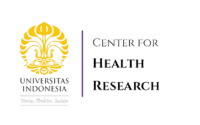Covid-19 in Indonesia: What is the cause of poor testing rate?
Covid-19 is a new type of disease that was first discovered in Wuhan, China (1). This disease spread quickly throughout the world. The WHO even declared Covid-19 as a world pandemic. At present 213 countries have contracted Covid-19, including Indonesia (2). Based on study in Wuhan, the disease is spread by transmission through droplets produced by coughing, sneezing, or talking, with an average incubation period of about 5.2 days (3). The period from the onset of Covid-19 symptoms to death ranges from 6 to 41 days with a median of 14 days (4).
One of the key to reduce the Covid-19 cases is by conducting rigorous testing which is necessary as a disease tracking tools to determine distribution of the disease itself. While the highest number conducted was in United States, which reach about 5.7 million testing or about 150 per 1000 population by April 2020 (7), Indonesia testing number is still low which only 55.732 tests or 8 per 1000 population were conducted by April 2020. Even among the ASEAN countries, Indonesia test rate was still the lowest by April 2020.
The question is, why does Indonesia face difficulties in accelerating as many as possible of Covid-19 tests? Based on the observational study conducted by Purwa Kurnia Sucahya, it is found that the main issues that cause the poor number of testing are the readiness and capacity between labs availability of
swab collection officers, availability of reagents in the lab rules for lab officers and swab collection officers, transportation for a specimen from health facility to the referral lab.
Therefore, it is necessary for the government to ensuring that the reference labs designated are under standards both in terms of human resources, availability of tools, and reagents so that when appointed by the government they can immediately operate. Second, ensuring the additional adequacy of swab-taking field officers as the number of designated reference labs increases, especially in the red zone or areas that are confirmed positive for Covid-19. If this is not met, then the lab capacity will be idle. To that end, recruit officers for swab collection and provide adequate training. Third, the shift rules for the lab team in the lab and swab collectors need to be improved, especially working hours on holidays. The goal is to avoid fluctuations in daily test results so that actual lab capacity can be measured. Fourth, ensure adequate logistical PCR reagents for all referral labs. For this reason, a monitoring system for qualified logistical requests and deliveries must be made by using an information technology system. Also, pay attention to the time lag of purchasing reagents from the supplier so that there is no delay. Fifth, Indonesia’s geographical location is very broad and the position of the reference lab may not be all easily accessible to certain regions. For this reason, a specimen’s delivery and packaging procedures need to be considered. Sixth, encourage and strengthen the ability of existing resources in the country to be able to produce logistics needs and the needs of medical devices independently.
